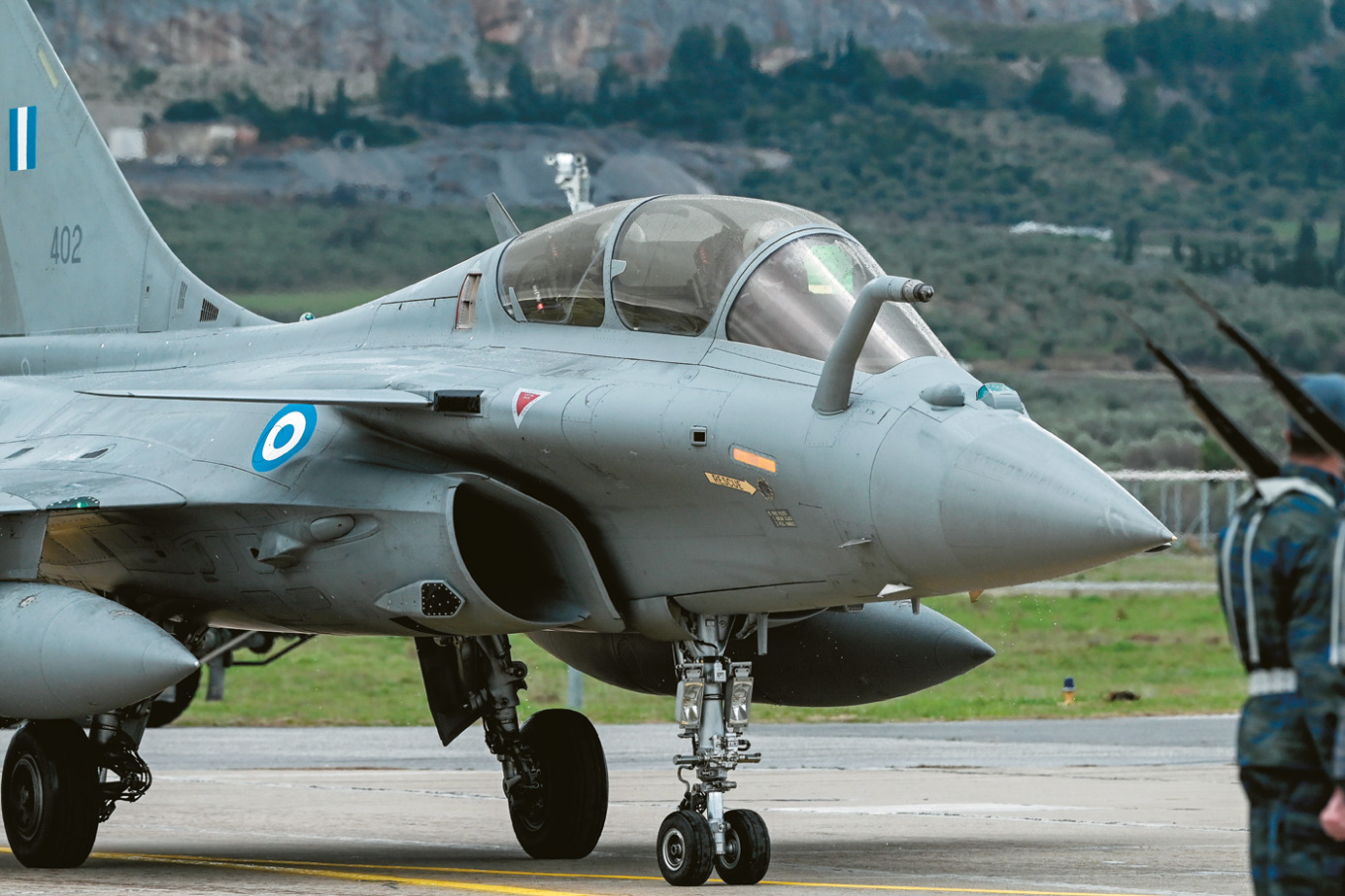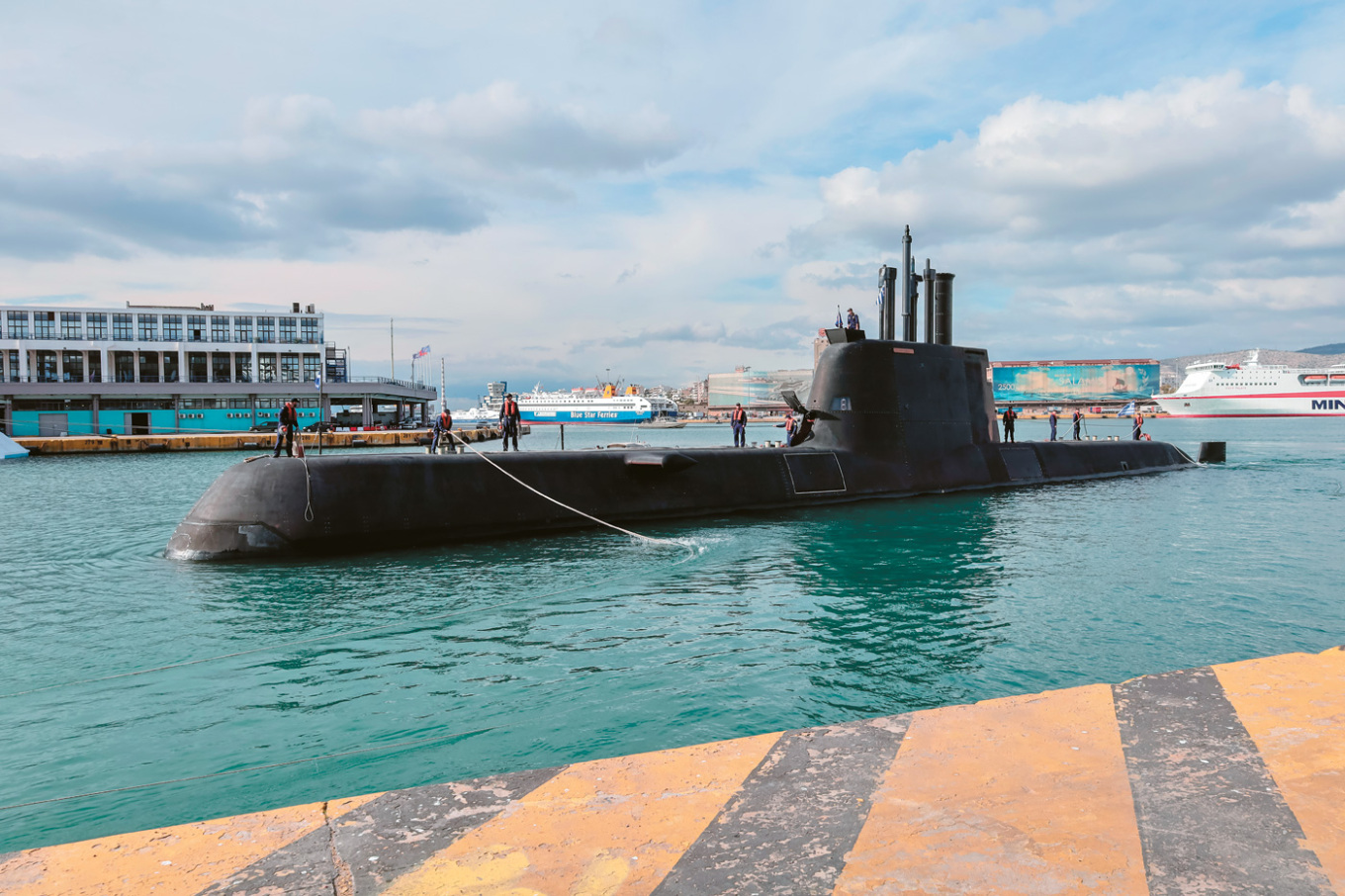Turkey’s expansionist strategy and the asymmetric threats facing Greece are guiding Athens’ decisions to strengthen the country’s defenses. Reinforcing the Hellenic Navy and developing new weapons systems are essential. Several defense programs are already in progress, while the government is preparing to make important decisions within a tight fiscal framework. This will require careful balancing of costs and benefits for new initiatives. Strengthening the Hellenic Air Force, which has gained an advantage in the Aegean with new programs, is vital, but it won’t provide sufficient deterrence without the corresponding reinforcement of the Navy and development of modern, smart weapons systems.
Air Force
In September, two additional Rafale F3R jets will arrive at the Tanagra Air Base, marking the first deliveries from the final six ordered after the initial agreement’s extension. Four more will arrive at the 114th Combat Wing, with the 332nd Squadron operating 24 4.5-generation aircraft. Plans are in place to expand the fleet to 30 Rafale aircraft, pending the sale of Mirage 2000-5 jets to France. Talks with the French are expected to begin this month.
The Hellenic Air Force is also expecting discussions with the U.S. this month regarding the upgrade of 38 F-16 Block 50 aircraft to the Viper level. The final proposal will depend on the costs, and the ultimate goal is to modernize the entire F-16 fleet. According to Defense Minister Nikos Dendias, Greece’s “2030 Agenda” targets a total fleet of 200 4.5th and 5th generation aircraft, including F-16 Vipers, Rafales, and F-35s.

Navy
The reinforcement of the Hellenic Navy is necessary to maintain Greece’s advantage in the Aegean gained through the acquisition of Rafale jets and future F-35s. On September 19, the second digital frigate, FDI “Nearchos,” will be launched at the Lorient shipyard, with Defense Minister Nikos Dendias in attendance. The crew of the first frigate, “Kimon,” has already begun intensive training. There is a push to order a fourth “Kimon” class frigate to further strengthen the Navy.
Meanwhile, a new electronic warfare (ECM) system for the Belh@rra frigates is being finalized in Toulon. This advanced system will help the Greek Armed Forces counter asymmetric threats. At the same time, decisions are pending regarding the critical upgrade of the aging MEKO frigates, while budget constraints have delayed the acquisition of corvettes, potentially shifting focus to the development of the “Eurocorvette,” expected by 2030.
Submarines and Drones
Turkey’s recent commissioning of the “Piri Reis” submarine has raised concerns in Athens, as it threatens to disrupt Greece’s underwater dominance. The Hellenic Navy is exploring options for air-independent propulsion submarines and unmanned underwater vehicles, while upgrades are planned for the existing Type 214 “Papanikolis” submarines.
Greece is also prioritizing drone technology and anti-drone systems, with several projects under development. The country is investing €166 million in research programs, focusing on innovative solutions to enhance its military capabilities.

Political and Fiscal Challenges
Defense Minister Dendias has called for changes to European fiscal rules, highlighting the unfairness of including defense spending in state deficit calculations. He argues that Greece, which participates in multiple European defense programs, is unjustly penalized under these fiscal constraints.
Turkey’s rapid military buildup poses a challenge that Greece cannot ignore. However, Athens must carefully manage its defense investments to avoid an unsustainable arms race, focusing instead on strategic deterrence with transparency and efficiency.
Ask me anything
Explore related questions





